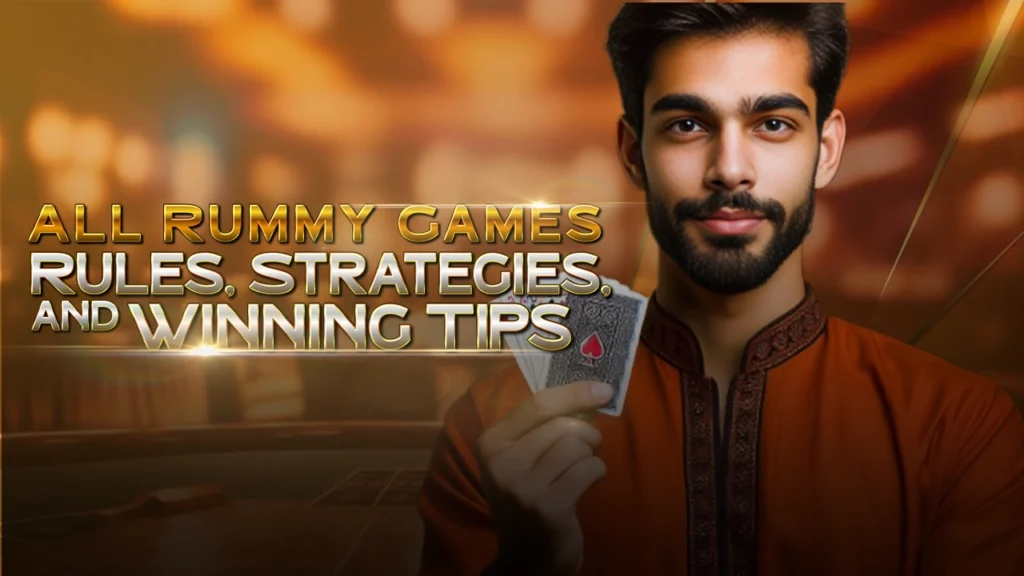
For decades, the venerable card game Rummy has enthralled players. Renowned for its mix of ability, strategy, and a little luck, Rummy has evolved into a mainstay in homes and casinos all around. Engaging and intellectually stimulating, the game aims to create legitimate sets or sequences of cards. Rummy presents countless entertainment value and challenges regardless of your level of experience—from rookie just learning the game to seasoned player with years of expertise. Its continuing popularity is evidence of its ageless appeal and the thrills it offers to gamers of all stripes.
Learning several all rummy games will improve your skills and increase your winning probability. From knowing the fundamental rules to acquiring complex techniques, success in All Rummy Games depends on thorough comprehension of the game. Covering the basic principles, successful techniques, and advanced advice to hone your skills, this guide seeks to give you all you need to excel at All Rummy Games. Learning the subtleties of several Rummy variants and improving your skills will help you to improve your games and savor the gratification of successful victories in this dear card game Teen Patti Rummy.
Types of All Rummy Games
All Rummy Games is not a single game but a collection of related games that share common principles but differ in rules and gameplay. Here are the most popular types:
Points Rummy
Points Rummy is the most basic form of All Rummy Games. Players play for points, with each point having a predetermined monetary value. The game is fast-paced, and the winner is the first to form valid sequences and sets.
Pool Rummy
In Pool Rummy, players contribute to a pool, and the game continues until a player reaches the maximum points limit (101 or 201). The player with the fewest points at the end wins the accumulated pool money.
Deals Rummy
Deals Rummy is played for a fixed number of deals, usually two or three. Each player starts with a fixed number of chips, and the player with the most chips at the end of the deal is the winner.
Gin Rummy
Gin Rummy is a two-player variant where the objective is to form sets and runs before your opponent. Players aim to “knock” or “go gin” to end the round and score points based on the remaining unmatched cards in the opponent’s hand.
Indian Rummy
Indian Rummy, also known as 13 Card Rummy, is popular in South Asia. It combines elements of both Gin Rummy and Rummy 500. The game is typically played between 2 to 6 players, with each player dealt 13 cards. The goal is to form valid sequences and sets.
Each type of All Rummy Games offers a distinct gameplay experience, challenging players to adapt their strategies and skills. Whether you prefer the swift pace of Gin Rummy or the complex contracts of Contract Rummy, there’s an All Rummy game to suit every taste. By exploring these variations, you can enhance your understanding of All Rummy Games and enjoy countless hours of entertainment.
Download the APK so you can have a smooth experience!
Basic Rules of Rummy
Regardless of the variant, Play rummy games share core principles and rules that form the foundation of gameplay. The objective in most All Rummy games is to form valid sets and sequences from the cards dealt to each player. A set consists of three or four cards of the same rank but different suits, while a sequence comprises three or more consecutive cards of the same suit.
Players typically draw and discard cards in turns, aiming to improve their hands by forming these sets and sequences. Jokers and wild cards can often be used as substitutes for any card to complete a set or sequence, although some variations require at least one pure sequence without a joker.
Objective of the Game
The primary objective is to form valid sequences and sets with the cards in your hand. A sequence is a consecutive grouping of three or more cards of the same suit, while a set is a grouping of three or four cards of the same rank but different suits.
Card Values and Deck Structure
All Rummy Games are typically played with one or two standard decks of 52 cards, plus jokers. The cards are ranked from low to high as follows: Ace, 2, 3, …, 10, Jack, Queen, King. In most Rummy variants, jokers are used as wild cards that can substitute for any other card.
How to Form Sequences and Sets
- Sequence: A pure sequence is a group of consecutive cards of the same suit without a joker. An impure sequence includes a joker.
- Set: A set consists of three or four cards of the same rank but different suits. Jokers can be used to complete a set.
Winning Conditions
A player wins the game by declaring, which involves showing all the cards in valid sequences and sets. The declaration must include at least one pure sequence.
Strategies for Winning Rummy
To become proficient at All Rummy Games, mastering the basic rules is not enough. You need to develop effective strategies.
Read more articles about Strategies for Winning
Understanding the Draw and Discard Pile
Knowing which cards to pick from the draw pile and which to discard is crucial. Avoid picking cards from the discard pile unless it completes a sequence or set, as it gives away information to your opponents.
Forming Sequences Early
Prioritize forming pure sequences early in the game, as they are mandatory for a valid declaration. This reduces the risk of being caught with high-value cards if your opponent declares.
Observing Opponents
Pay attention to the cards your opponents pick and discard. This can provide insights into the sequences or sets they are trying to form, allowing you to block their moves by holding onto critical cards.
Joker Usage
Jokers are powerful tools in Rummy. Use them wisely to complete impure sequences or sets, but avoid relying on them excessively. It’s best to save jokers for completing higher-value sets or sequences.
Avoiding High-Value Cards
High-value cards (face cards and tens) can be risky to hold onto, as they contribute significantly to your score if you lose. Discard them early unless they are part of a sequence or set.
Advanced Tips for Rummy
Once you have the basics and strategies down, you can delve into advanced techniques:
Bluffing and Deception
Bluffing can be an effective strategy in Rummy. Discarding cards that seem valuable to your opponents can mislead them into holding onto useless cards, disrupting their strategy.
Memory and Recall
Improving your memory and recall abilities can give you an edge in Rummy. Remembering which cards have been discarded and keeping track of the cards picked by opponents can help you make informed decisions.
Probability and Risk Assessment
Assessing the probability of drawing certain cards and evaluating the risks involved in holding onto specific cards can enhance your gameplay. Make calculated moves based on the likelihood of completing sequences and sets.
